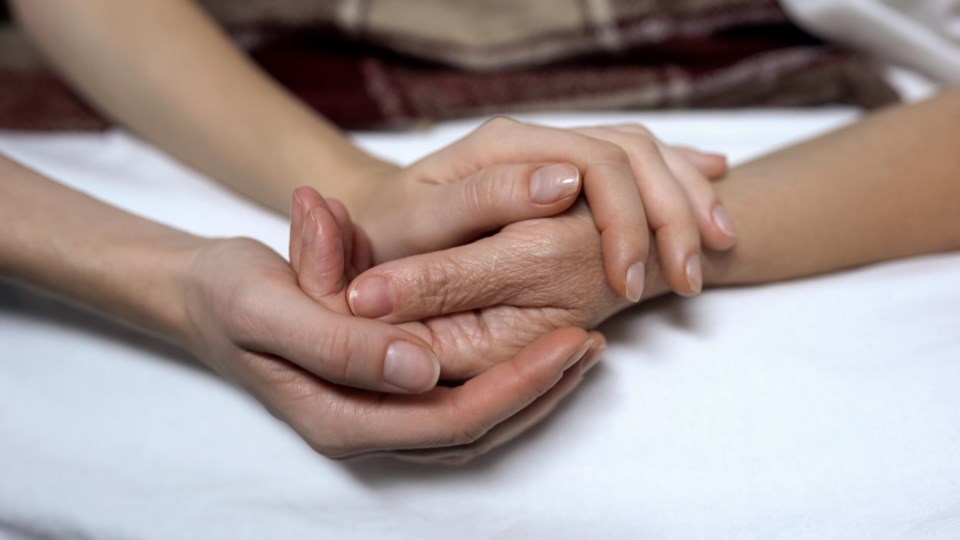Dying is a fascinating subject that I have intimately contemplated for most of my life. I just attended my father’s memorial service and would like to share some of my feelings about dying. Other than birth, death is the most important life event. Humanity spends a lot of effort and financial resources trying to avoid and even cheat death, but eventually leaving this life is guaranteed.
Death is mankind’s greatest fear so we work hard to survive, and the part of our mind responsible for our survival takes itself very seriously. However, believing all the thoughts generated by our minds, generally keeps us in a state of fear (Future Experience Appearing Real). When we are in a state of fear, our nervous system is ramped up and ready for fight or flight – a part of the survival instinct not meant to be our continuous state of mind.
There are many beliefs around the world about death and potential afterlife. I won’t speculate about that in this article, but would like to discuss the importance of thinking about death itself. Contemplating or meditating on death is very healthy if it can be done without succumbing to fear. Imagine that you have only a week to live. What do you think your thoughts would be?
After reading ‘On Death and Dying’ by Elizabeth Kubler-Ross in my 20’s, I did my hospice training and became passionate about supporting those leaving life and assisting their family members. I have not officially been involved with hospice for 20 years, but I have had the honour of being at many bedside passings. As they prepare to leave this earthly plane, the dying often share their great regrets with those supporting their passing. These intimate conversations usually involve the following areas: relationships that haven’t been healed; loss of contact with friends, family and other loved ones; guilt from bad life choices; not being authentic or honest enough; being too concerned about what others thought; neglecting family or taking them for granted; working too hard and missing important moments in their kid’s lives; not enjoying life enough; being too afraid of failure to realize their own dreams; and not taking better care of the health of their bodies.
If we imagine what our own regrets may be at our own death, what changes can we make in our lives now to decrease or eliminate them? If relationships need healing, we could write a heart-felt letter or even invite those we are at odds with to some counseling. We can contact those we have lost touch with and rekindle relationships. We can right our wrongs, apologize and learn from our mistakes. If we have been distrustful or untruthful, we can come clean and ask for forgiveness. We can plan to work less and make time for things we have put off – even things on our bucket list. We can pay more attention to the important things like our families, our children, our health. We cannot take our pride with us so we may as well let go of it before we regret that it was more important than anything else. I recommend “How to do the Work” by Dr Nicole LaPara.
These are a couple of my favourite Elizabeth Kubler Ross quotes: Begin to live each day to the fullest, as if it were the last one you have and "Live, so you do not have to look back and say 'God, how I have wasted my life'.
Reflecting on death is considered the most important mediation in Buddhism. Death can happen any time and I think it is a good thing to have contemplated beforehand so we have a better chance to heal and learn the life lessons our soul intended for us, and release energies, emotional addictions and conflicts that don’t serve us.
What has always motivated me to live my life from my heart (as much as possible) is the very idea of how I would feel about myself and my choices on my deathbed. When I leave this world, I don’t want to be riddled with regret. I want to feel that I did my best (more good than harm), made a positive difference in the world, contributed to positive energy rather than negative energy, and unconditionally loved as many people as possible. Living with loving intention is not always easy but if we strive for it and commit to the work of healing, I feel our parting may be more peaceful.
Claire Nielsen is a health coach, author, public speaker and founder of www.elixirforlife.ca. The information provided in the above article is for educational purposes only and is not a substitute for professional health and medical advice. Please consult a doctor or healthcare provider if you're seeking medical advice, diagnoses and/or treatment.



